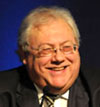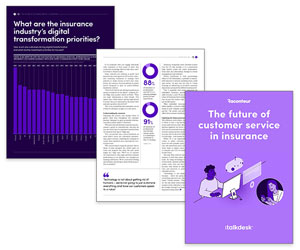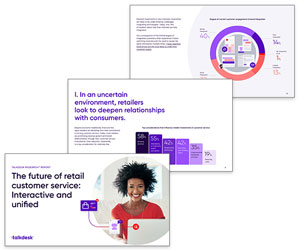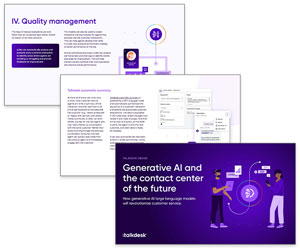Paul Cooper argues that a good boss will go for 100% targets – rather than 95% – then make an effort to understand why they aren’t hit.
Over the last 10 years I have done a lot of judging of organisations, especially their contact centres, for various awards schemes. These have included everyone from local authorities and other public sector organisations, to utilities, retail stores, banks and insurance companies, automotive companies and all other shades and variations.
Of course, to get through to the finals of these awards programmes you have to be pretty good, so I only get to see the better ones. If that’s the case, then the others must have some real problems!
Targeting of performance measurements
One of the biggest areas where I have issues with these organisations is in their targeting of performance measurements. All too often the targets are set at levels like “95% of all calls answered in 3 rings”, or “90% of all emails replied to next day” and the like. Now call me old-fashioned, or even radical, but in my world you either REALLY try to do something properly or you don’t bother.
Are they saying that if we get it right all week we can goof off on Friday? Well, let’s hope not. But this whole attitude allows people, especially bosses, to get the wrong impression about their organisation. I think the most frequent phrases of justification I hear on things like Watchdog are “We get it right most of the time – that’s pretty good”, or that old favourite “We’re no worse than anyone else!”
Expectation of failure
But actually it is building an expectation of failure into the process and employees’ minds. “Ah, human error”, you say. Well, no, actually, there is no reason why many of these failings can’t be designed out of the system with a little thought and care, and there is little incentive to do this if an element of failure is built in.
Supposing an airline followed these rules – “Oh well, we’re doing fine if 95% of our planes successfully take off and land.” Or if a surgeon did the same…
These soft targets smack to me of fear. Fear of the bosses who would come down on them if they failed; fear of regulators, who have no idea of how to improve service, or run a business; and much more, fear of each other.

Paul Cooper
“But we can never be perfect” you then cry. Well, apart from my initial response of “Why not: I am”, which I will suppress, what is wrong with trying really hard, and missing occasionally? The whole mindset is different if people are aiming to get it right all the time. Of course, there will be the odd mistake, but as long as one knows why, so what? It’s a learning point. It doesn’t mean it’s acceptable, so next time try even harder not to make it. And then there’ll still be mistakes. So what – learn from them and improve. And so on…
With complaints, the failing is not screwing up occasionally, it’s making the same mistake twice, and the same thing is true here, too.
But weak organisations, and those with the worst sort of management, want accountability to the nth degree and everything compartmentalised. It’s as if they just want someone to blame all the time.
Enlightened bosses go for 100% targets
Enlightened bosses go for 100% targets, then understand why and when they aren’t hit, and encourage staff to do better next time (and they don’t constantly keep hitting people over the head with their mistakes).
Those are the sorts of managers and bosses we need to grow, and for whom we want to work.
And if you’re a customer, don’t be surprised next time you get a poor response to a phone call or whatever – you’re probably in the 5% who DIDN’T get in the target!
Paul Cooper is an Independent Consultant & ex-Executive Director of the Institute of Customer Service
What sort of targets do you aim for? Stretching but achievable? 100%? Easy to achieve?
Let us know
Author: Megan Jones
Published On: 29th Jan 2014 - Last modified: 12th Aug 2022
Read more about - Call Centre Management, Customer Service, Paul Cooper




















What’s not being said in published targets is that eventually there is an expectation for a 100% achievement. In your example of 95% answered in 3 rings, one may ask “so at most, how many rings do we expect that 100% of the calls are answered?” There must be an answer, and the 95% is just your fail-safe to ensure that your end goal of 100% is achieved. The expectation of failure may be present in most organizations, but it’s not always the case for those with “nearly right” targets.
I would suggest that the biggest mistake is not targetting the right things as opposed to the percentage target itself. That tends to be immaterial as so often, the actual percentage chosen is arbritary anyway.
In a contact centre environment, so much of what we do is measurable, so the human instinct is to latch onto those measures and use them to gauge how well it is performing whilst blindly oblivious to what the customer really cares about.
That said, I do think it’s rather impractical to draw a comparison between typical contact centre metrics and the success of planes to take off and land!
I disagree in principle with some of the article. Often targets are not set as a result of fear of failure or even an acceptance that an OK job is a good job, but more simply as a result of cost.
Lets look at an SLA for volume of calls answered set at 95%. The cost involved in staffing to be able to answer the call in 3 rings etc is eye watering when compared to reasonalbe staffing to achieve the aformentioned SLA at 95%. The damage that staffing to 95% creates to customer experience is insignificant in comparison to these costs, its all about a balance.